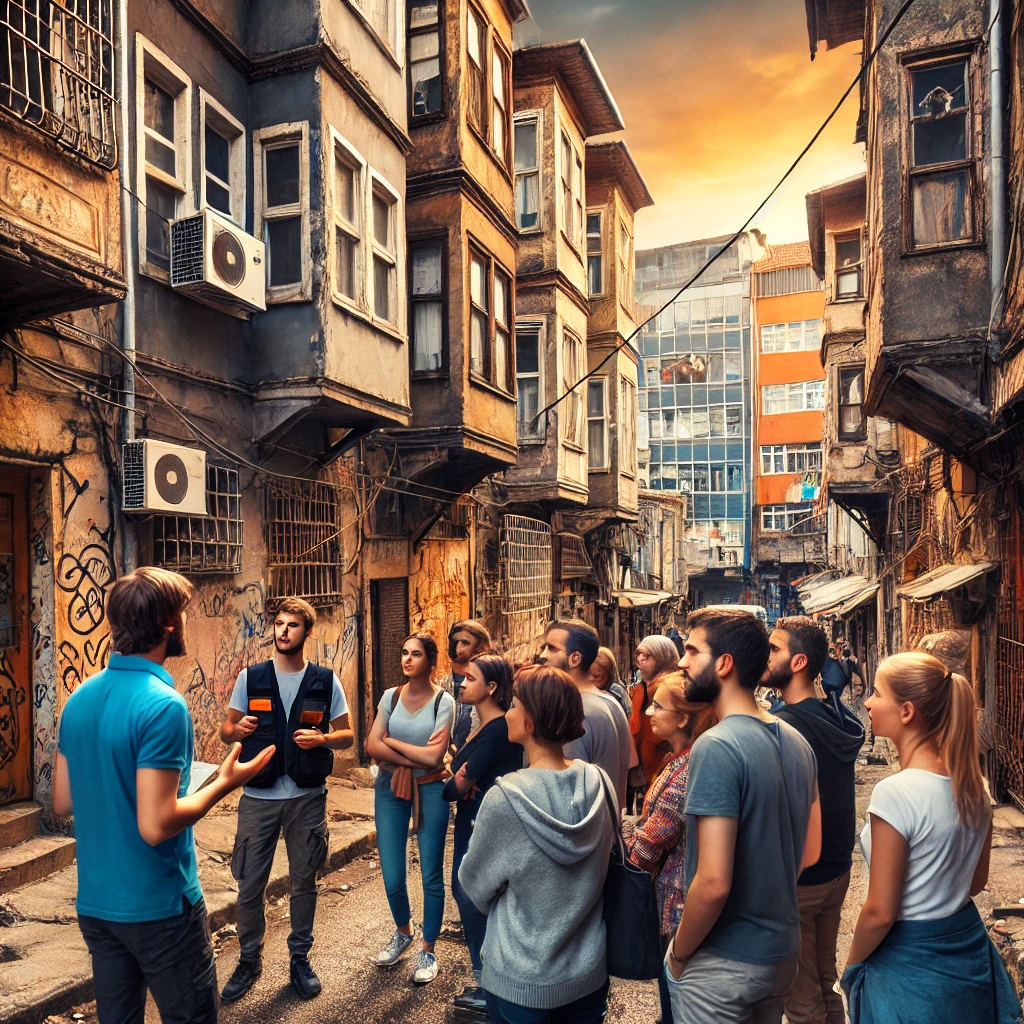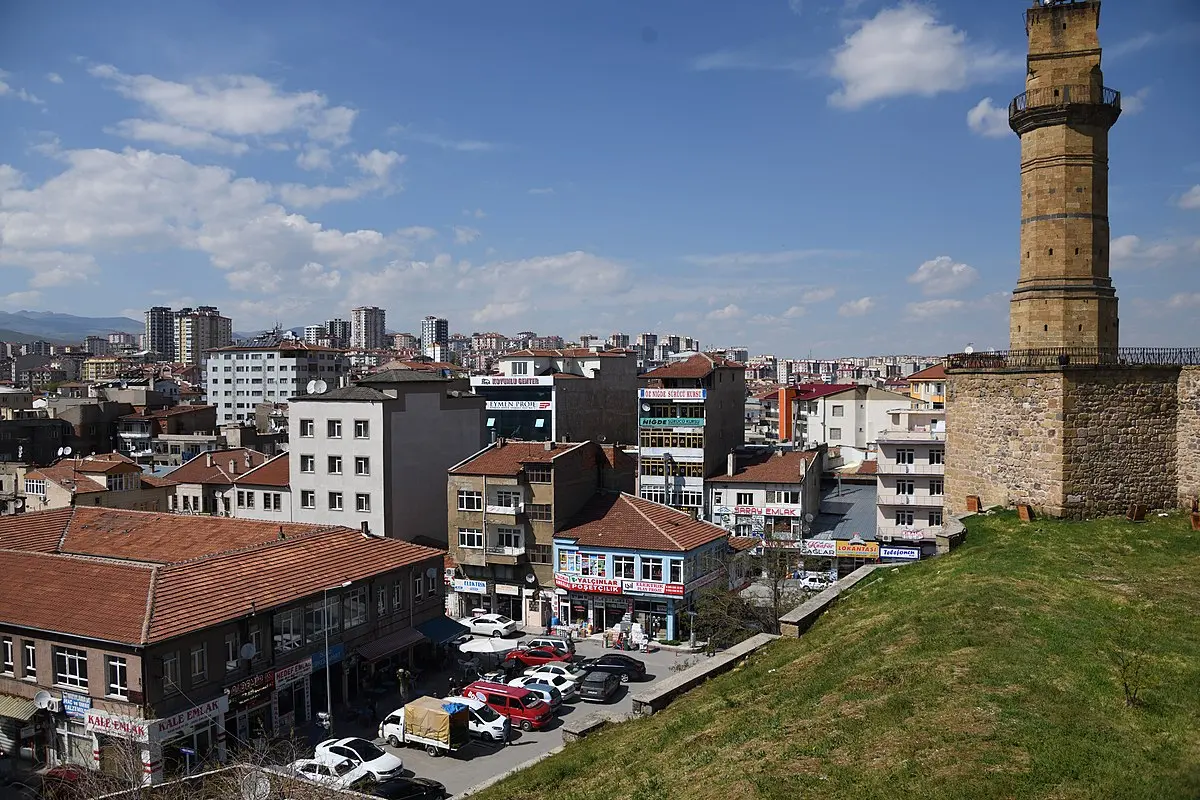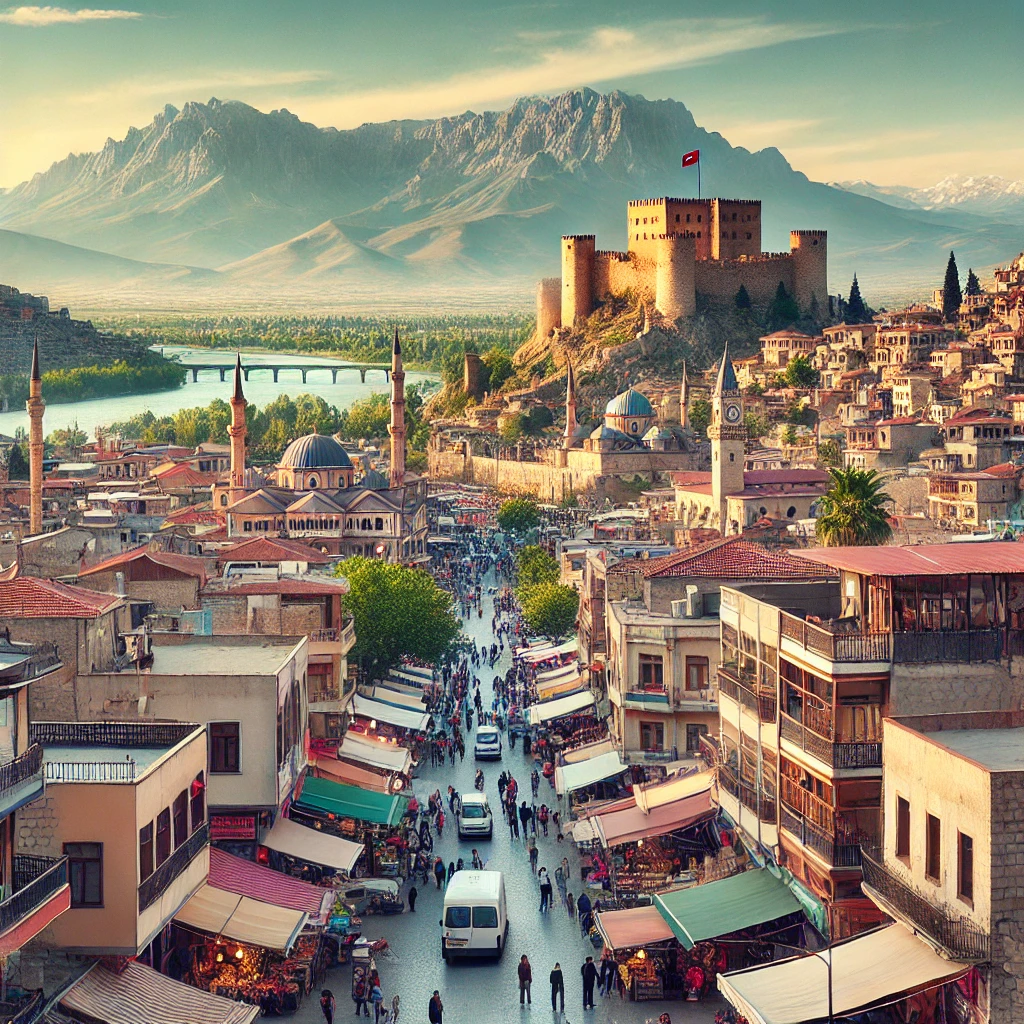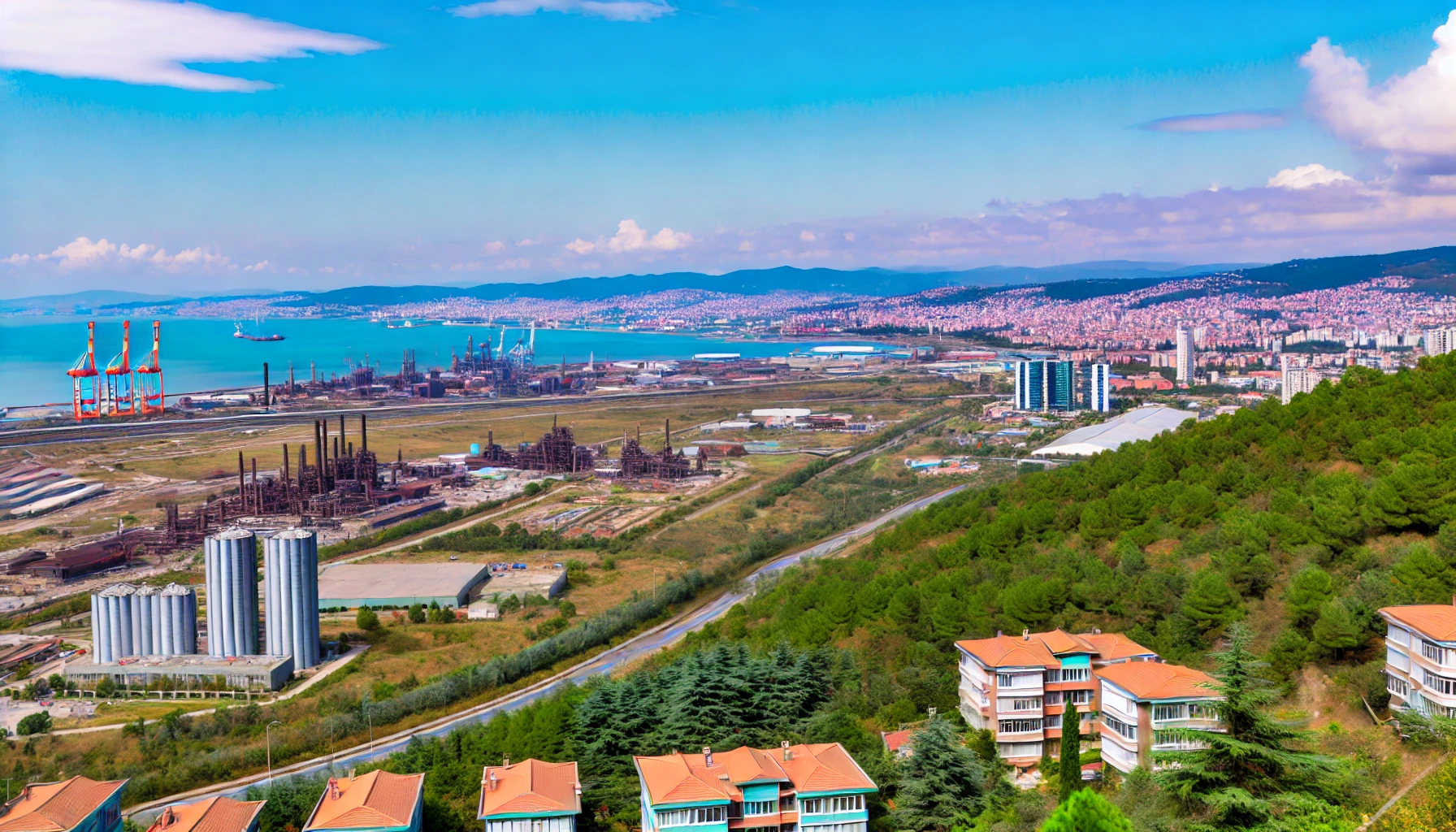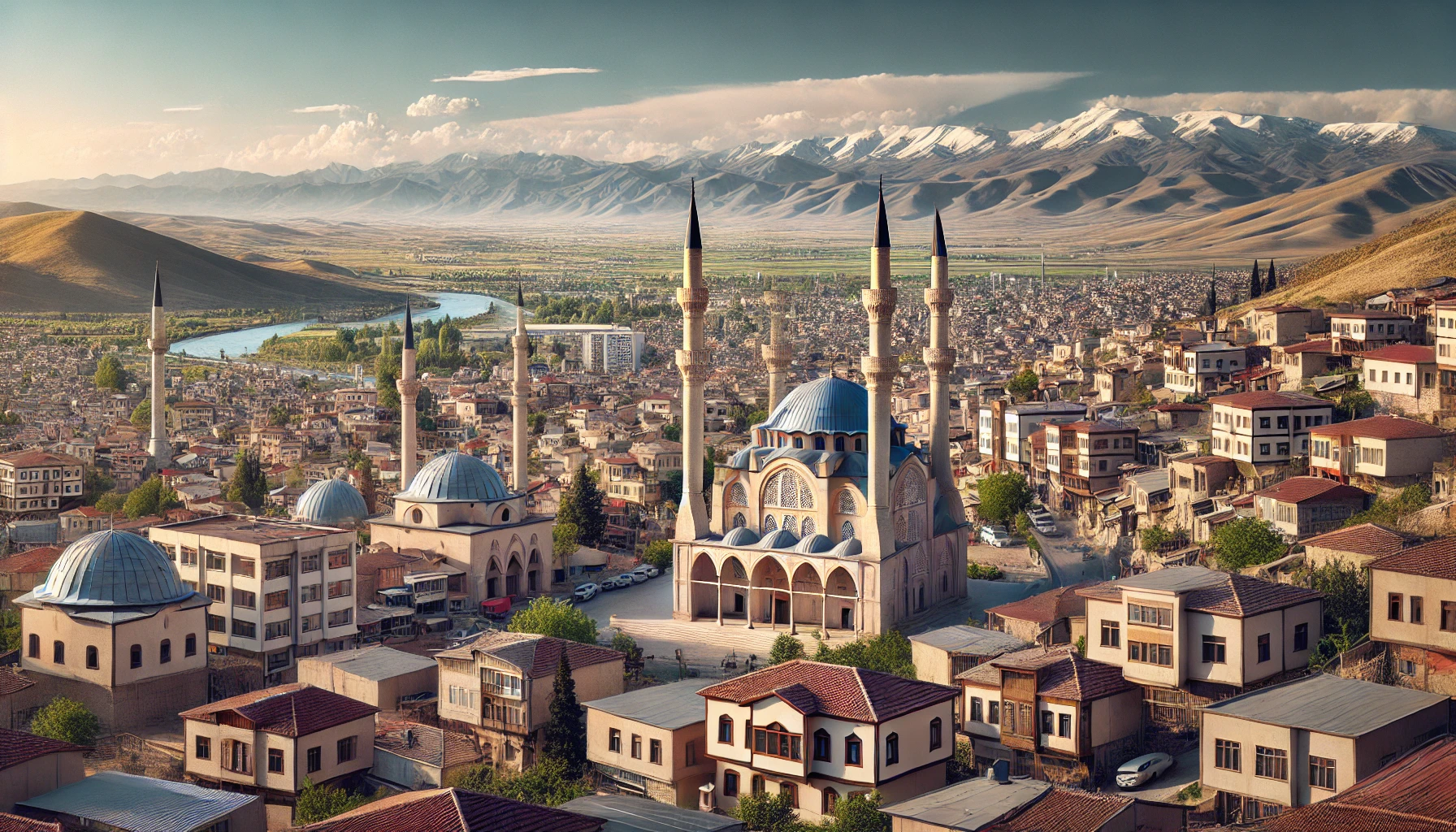Slum Tourism in Turkey
Slum tourism, also known as ghetto tourism, involves visiting impoverished areas to gain a deeper understanding of the living conditions, culture, and resilience of the residents. This type of tourism offers an opportunity to see the “non-touristy” parts of a country and engage with local communities in a meaningful way. While it can be controversial, when done respectfully and ethically, slum tourism can promote awareness and contribute to local development. Turkey, a country known for its rich history and cultural diversity, also has areas where slum tourism can provide unique insights and valuable experiences. This article explores the concept of slum tourism in Turkey, highlighting its significance, ethical considerations, and key locations.
Understanding Slum Tourism
What is Slum Tourism?
Slum tourism involves guided tours to impoverished neighborhoods, where tourists can observe daily life, learn about the challenges faced by residents, and engage in cultural exchanges. It aims to provide a more holistic view of a country, beyond its popular tourist attractions, and foster empathy and understanding.
The Purpose of Slum Tourism
The primary purpose of slum tourism is to raise awareness about poverty and social issues, promote cultural understanding, and support local economies through responsible tourism. It can also provide funding for community projects and development initiatives.
Ethical Considerations
Slum tourism must be approached with sensitivity and respect. Tourists should avoid voyeurism and exploitation, ensuring that their visits are beneficial to the community. Engaging with local guides, respecting residents’ privacy, and contributing to local businesses or development projects are essential practices.
Slum Tourism in Turkey: Key Locations
Istanbul: Exploring the Contrasts
Overview
Istanbul, Turkey’s largest city, is a bustling metropolis that showcases a stark contrast between wealth and poverty. While it is famous for its historical landmarks and vibrant culture, Istanbul also has neighborhoods that face significant economic challenges.
Must-Visit Areas
- Tarlabaşı: Located near the city center, Tarlabaşı is one of Istanbul’s most impoverished neighborhoods. Despite its challenges, the area is rich in cultural diversity, with a significant population of Kurds, Roma, and African immigrants.
- Sulukule: Historically a Roma settlement, Sulukule has undergone significant changes due to urban redevelopment. Visiting this area provides insights into the impact of gentrification on local communities.
Experiences and Activities
- Walking Tours: Guided walking tours led by local residents can offer a comprehensive view of the neighborhood, including its history, culture, and current challenges.
- Community Projects: Participate in or support community projects that aim to improve living conditions and provide educational opportunities for residents.
Ankara: The Capital’s Hidden Realities
Overview
Ankara, the capital of Turkey, is often associated with government buildings and modern infrastructure. However, the city also has neighborhoods where poverty is a significant issue.
Must-Visit Areas
- Altındağ: This district has a mix of historical sites and impoverished neighborhoods. It provides a unique perspective on the socio-economic disparities within the capital.
Experiences and Activities
- Local Markets: Visit local markets to experience daily life and support small businesses.
- Cultural Exchanges: Engage in cultural exchange programs that facilitate interactions between tourists and residents, promoting mutual understanding.
Izmir: Beyond the Coastal Glamour
Overview
Izmir, a major port city on the Aegean coast, is known for its beautiful coastline and vibrant nightlife. However, like other major cities, it has areas that face economic hardships.
Must-Visit Areas
- Kadifekale: An ancient fortress area that overlooks the city, Kadifekale is home to many low-income families. The neighborhood offers a mix of historical significance and contemporary challenges.
Experiences and Activities
- Historical Tours: Explore the historical aspects of Kadifekale while learning about the socio-economic issues faced by its residents.
- Volunteer Opportunities: Participate in volunteer programs that support local education and healthcare initiatives.
The Impact of Slum Tourism
Raising Awareness
Slum tourism can play a crucial role in raising awareness about poverty and social inequality. By witnessing these issues firsthand, tourists can develop a deeper understanding and empathy for the affected communities.
Supporting Local Economies
Responsible slum tourism can contribute to local economies by providing income for local guides, businesses, and community projects. Tourists can support the community by purchasing local products and services.
Promoting Development
Funds generated from slum tourism can be used to support community development projects, such as building schools, improving infrastructure, and providing healthcare services. This helps improve the quality of life for residents and promotes sustainable development.
Ethical Considerations and Best Practices
Engaging with Local Communities
Engaging with local communities in a respectful and meaningful way is essential for ethical slum tourism. This includes listening to residents’ stories, participating in cultural activities, and supporting local initiatives.
Respecting Privacy and Dignity
Tourists should always respect the privacy and dignity of residents. Avoid taking photographs without permission and be mindful of how you interact with people in these communities.
Supporting Sustainable Tourism
Supporting sustainable tourism practices is crucial for ensuring that slum tourism has a positive impact. This includes choosing reputable tour operators, supporting local businesses, and contributing to community development projects.
Slum tourism in Turkey offers a unique and eye-opening experience for travelers, providing a deeper understanding of the country’s socio-economic realities and cultural diversity. By visiting impoverished neighborhoods and engaging with local communities, tourists can raise awareness about important social issues, support local economies, and promote sustainable development. However, it is essential to approach slum tourism with sensitivity, respect, and a commitment to ethical practices. By doing so, travelers can make a positive impact and gain a more comprehensive and meaningful travel experience.
Latest Update: Jul 22, 2024
Your Content Goes Here
TAGS: Ankara impoverished neighborhoods, community engagement Turkey, ethical slum tourism, ghetto tourism Turkey, Istanbul slum tours, Izmir slum tourism, poverty awareness Turkey, responsible travel Turkey, slum tourism Turkey, sustainable tourism Turkey
A brief summary of the key points in this article.

